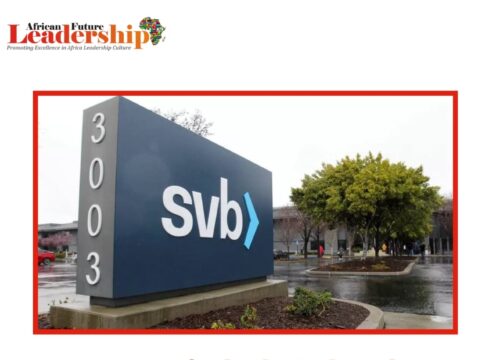People and businesses who have money deposited with failed US bank Silicon Valley Bank (SVB) will be able to access all their cash from Monday, the US government has said.
A statement from the US Treasury, the Federal Reserve and Federal Deposit Insurance Corporation (FDIC) said depositors would be fully protected. The taxpayer will not bear any losses from the move, the statement said.
SVB was shut down by regulators who seized its assets on Friday. It was the largest failure of a US bank since the financial crisis in 2008.
According to the BBC, the move came as the firm, a key tech lender, was scrambling to raise money to plug a loss from the sale of assets affected by higher interest rates.
“The US banking system remains resilient and on a solid foundation, in large part due to reforms that were made after the financial crisis that ensured better safeguards for the banking industry,” the authorities’ joint statement said.
READ MORE: Naira Redesign: Many Nigerians Face Difficulties As Old Naira Notes Are Rejected
“Those reforms combined with today’s actions demonstrate our commitment to take the necessary steps to ensure that depositors’ savings remain safe.”
Those actions also apply to Signature Bank of New York, seen as the most vulnerable institution after SVB, which came under regulatory control on Sunday.
As part of their moves to restore confidence, regulators also unveiled a new way to give banks access to emergency funds.
The Federal Reserve said it would offer assistance through a new Bank Term Funding Program, making it easier for banks to borrow from it in a crisis.
President Joe Biden said the American people could have “confidence that their bank deposits will be there when they need them”.
SVB was seen as a crucial lender for early-stage businesses in the tech sector. It was the banking partner for nearly half of US venture-backed technology and healthcare companies that listed on stock markets last year.
This statement, then, has been welcomed by depositors. But there are those that will raise eyebrows at this move.
SVB mainly banked start-ups and venture capitalists in Silicon Valley – the tech elite. And those Silicon Valley elites tend to have more than a streak of libertarianism to their politics: the boilerplate view is that government is slow and too big.
Critics argue that it’s with great irony that it’s the government who has stepped in to save the day. Some will wonder whether influential tech bros have been given preferential treatment: capitalism for when things go well, socialism for when it doesn’t.
It’s why the statement is worded carefully that taxpayers will not be paying for this. Mr Biden will now have to defend the move – and reassure members of his own party that guaranteeing depositors was the only way.
SVB started as a California bank in 1983 and expanded rapidly over the last decade.
But it came under pressure as higher interest rates made it harder for start-ups to raise money through private fundraising or share sales.
In Silicon Valley, the reverberations from the collapse have been widespread as companies face questions about what it means for their finances.
Paul Ashworth, chief North America economist at Capital Economics, said the US authorities had “acted aggressively to prevent a contagion developing”.
“Rationally, this should be enough to stop any contagion from spreading and taking down more banks, which can happen in the blink of an eye in the digital age. But contagion has always been more about irrational fear, so we would stress that there is no guarantee this will work,” he added.
Meanwhile, an offer has been made for SVB’s UK arm. A consortium of investors led by the Bank of London, a UK clearing bank, has submitted a formal bid to the UK Treasury.
The British government has been working on a plan to support UK tech firms affected by the collapse of SVB.




